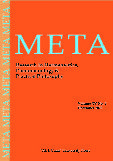Schopenhauer, Husserl and the Invisibility of the Embodied Subject
Abstract
For such refined idealists as Schopenhauer, Husserl and Wittgenstein, the correlation between the world and the subject must be recognized. Furthermore, the three commonly emphasize the distinction between the transcendental subject and the empirical subject as well as the distinction between the subject and object’s mode of being. They all realized that the confusion of the transcendental subject and the empirical subject causes the paradox of that the subject as one part of the world is at the same time the a priori condition of the whole world. In the history of western Philosophy, Schopenhauer is the first to realize that the subject is no more than the invisible body, or the body playing the subject’s role. Our body plays a role both as object and as subject. However, the fact does not mean that the body playing a role as a subject can be identified with the body playing a role as an object. As the subject, the body is the prerequisite of all the representations, but the body itself cannot simultaneously be represented by itself. If objects are always visible to me, then my body as a subject is invisible.
Keywords: Schopenhauer, Husserl, Wittgenstein, the transcendental subject, invisibility, body
[Full Article PDF]




